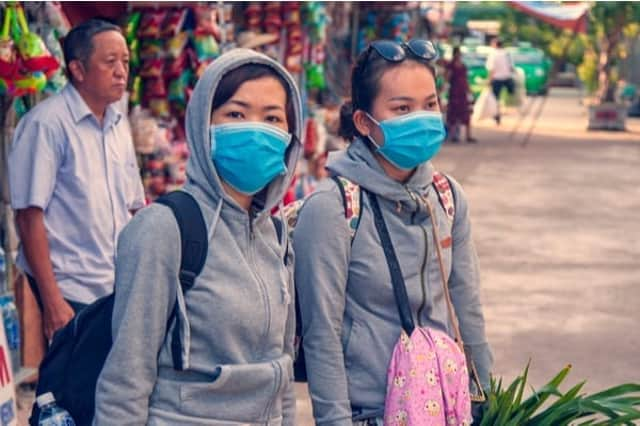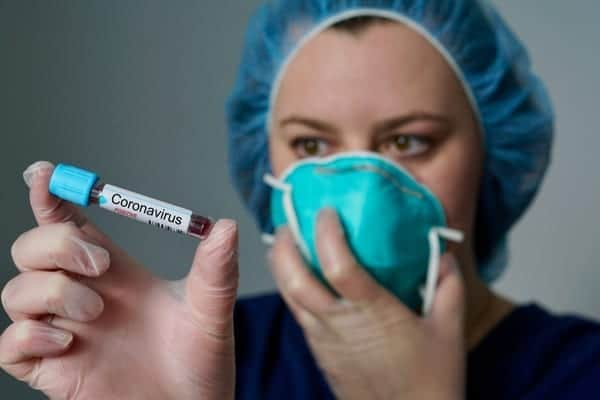This is the latest on coronavirus in the UK as first cases confirmed


The first cases of coronavirus have been confirmed in the UK today (Fri 31 Jan), as two members of the same family tested positive for the infectious disease.
Two patients in England have been diagnosed as more than 80 Brits on an evacuation flight from the Chinese city of Wuhan, at the centre of the outbreak, were due to land in the UK.
Advertisement
Advertisement
‘Receiving specialist care’


The Department of Health has declined to say where in England the patients are from, but it is understood that they are not in the Wirral area, where a special facility has been set up to quarantine those returning from Wuhan.
In a statement, chief medical officer Professor Chris Whitty said, "The patients are receiving specialist NHS care, and we are using tried and tested infection control procedures to prevent further spread of the virus.
"The NHS is extremely well-prepared and used to managing infections and we are already working rapidly to identify any contacts the patients had, to prevent further spread. We have been preparing for UK cases of novel coronavirus and we have robust infection control measures in place to respond immediately.
"We are continuing to work closely with the World Health Organisation and the international community as the outbreak in China develops to ensure we are ready for all eventualities."
Advertisement
Advertisement


British travellers returning from China are being placed in quarantine at the Brize Norton RAF base in Oxfordshire (Photo: PA)
A global health emergency
The deadly virus has already claimed the lives of more than 200 people in China and there have been almost 10,000 cases confirmed nationally.
Last night, the World Health Organisation declared coronavirus a global health emergency, confirming there are now 98 cases of the disease in 18 countries outside of China.
Eight of these cases involved human-to-human transmission in Germany, Japan, Vietnam and the US. British medical officers have now increased the risk level in the UK from low to moderate.
Advertisement
Advertisement
More than 80 British passengers who are travelling back on an evacuation flight from Wuhan - due to arrive at the Brize Norton RAF base in Oxfordshire at around 1pm - are to be taken to an NHS facility in Wirral for a quarantine period of 14 days.
They are believed to be staying in a former student accommodation block in the grounds of Arrowe Park Hospital.
What are the symptoms of coronavirus?
Coronaviruses are a large family of viruses, with the Centers for Disease Control and Prevention (CDC) explaining they usually cause “mild to moderate upper-respiratory tract illnesses”, like the common cold.
This particular strain originated in Wuhan City, Hubei Province, the largest city in central China, and is in the same family as SARS and MERS (Middle East respiratory syndrome).
Advertisement
Advertisement
The first suspected cases of the virus were reported at the end of last year on 31 December 2019 in Wuhan, but it has since been confirmed in other parts of China.
Most people get infected with these viruses at some point during their lives, although they usually only last for a short period of time.
Symptoms of the virus may include:
runny nose
headache
cough
sore throat
fever
a general feeling of being unwell
Human coronaviruses can sometimes cause lower-respiratory tract illnesses, such as pneumonia and bronchitis, or more severe diseases such as SARS. However, this is more common in people with cardiopulmonary disease, people with weakened immune systems, infants and older adults.
There are currently no vaccines to protect against coronavirus infection (Photo: Shutterstock)
Advertisement
Advertisement
How does it spread?
Coronaviruses are most commonly spread from an infected person to others through the following means:
the air by coughing and sneezing
close personal contact, such as touching or shaking hands
touching an object or surface with the virus on it, then touching your mouth, nose, or eyes before washing your hands
fecal contamination, although this is rare
How to stay safe
There are currently no vaccines to protect against coronavirus infection, but there are ways to help reduce your risk of contracting it.
The CDC advise:
washing your hands often with soap and water for at least 20 seconds
Advertisement
Advertisement
avoid touching your eyes, nose, or mouth with unwashed hands
avoid close contact with people who are sick
If you are experiencing cold-like symptoms, you can help reduce the risk of spreading it by staying at home while you are ill, and avoiding close contact with others.
You should cover your mouth and nose with a tissue when you cough or sneeze, and throw this away before washing your hands. It is also recommended to clean and disinfect objects and surfaces.